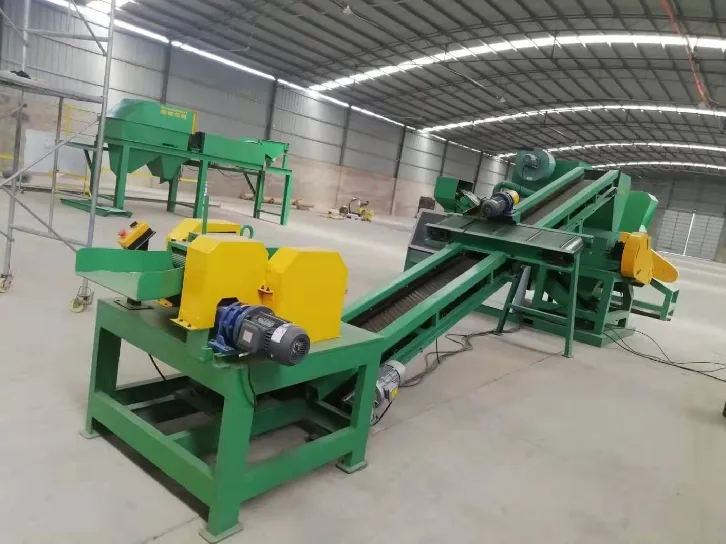

nov . 19, 2024 04:19 Back to list
The Importance of Aluminum Recycling Plants
Aluminum recycling plants play a critical role in promoting sustainable practices in today’s industrial world. As one of the most abundant metals on Earth, aluminum’s lightweight and corrosion-resistant properties make it a popular choice in various applications, from packaging to automotive manufacturing. However, the environmental impact of aluminum production from raw ore extraction is significant, often involving energy-intensive processes that contribute to pollution and resource depletion. Therefore, establishing efficient aluminum recycling plants has become essential for both environmental conservation and economic efficiency.
One of the primary advantages of aluminum recycling is its energy efficiency. Recycling aluminum saves up to 95% of the energy required to produce new aluminum from bauxite ore. This energy savings translates to reduced greenhouse gas emissions, making aluminum recycling a crucial component in combating climate change. In addition, by diverting aluminum waste from landfills, recycling helps to conserve natural resources and prolong the lifespan of existing mineable ores.
Aluminum recycling plants operate by collecting scrap aluminum from various sources. These sources can include post-consumer products, like beverage cans, and industrial scrap generated during manufacturing processes. Once collected, the scrap is sorted, cleaned, and shredded into small pieces. This preparation is vital to ensure high-quality recycling, as contaminants can affect the integrity of the recycled material. After shredding, the aluminum is melted down in large furnaces, purified, and then cast into new products, ready for manufacturing again.

Moreover, the economic impact of aluminum recycling plants cannot be overlooked. They create jobs in various sectors, from collection and sorting to processing and distribution. By stimulating local economies, these plants contribute to a circular economy where materials are reused rather than disposed of. This not only generates income but also fosters innovation in recycling technologies and processes.
Public awareness and participation are crucial for the success of aluminum recycling initiatives. Communities can support recycling efforts through proper waste segregation and by participating in local recycling programs. Education campaigns highlight the benefits of recycling, encouraging more individuals to contribute their aluminum waste for recycling, thereby enhancing the overall efficiency and effectiveness of aluminum recycling plants.
In conclusion, aluminum recycling plants serve as a vital solution to the environmental challenges posed by aluminum production and waste. By harnessing the energy efficiency, economic benefits, and community involvement in recycling efforts, these plants play an essential role in promoting sustainability. As society continues to evolve, fostering a culture of recycling will be imperative for ensuring the health of our planet and creating a more resource-efficient future.
Latest news
Troubleshooting Common Eddy Separator Problems
NewsJul.04,2025
The Role of Metal Recycling Plants in Circular Economy
NewsJul.04,2025
The Impact of Recycling Line Pickers on Waste Management Costs
NewsJul.04,2025
Safety Features Every Metal Shredder Should Have
NewsJul.04,2025
How Industrial Shredders Improve Waste Management Systems
NewsJul.04,2025
How Cable Granulators Contribute to Sustainable Recycling
NewsJul.04,2025